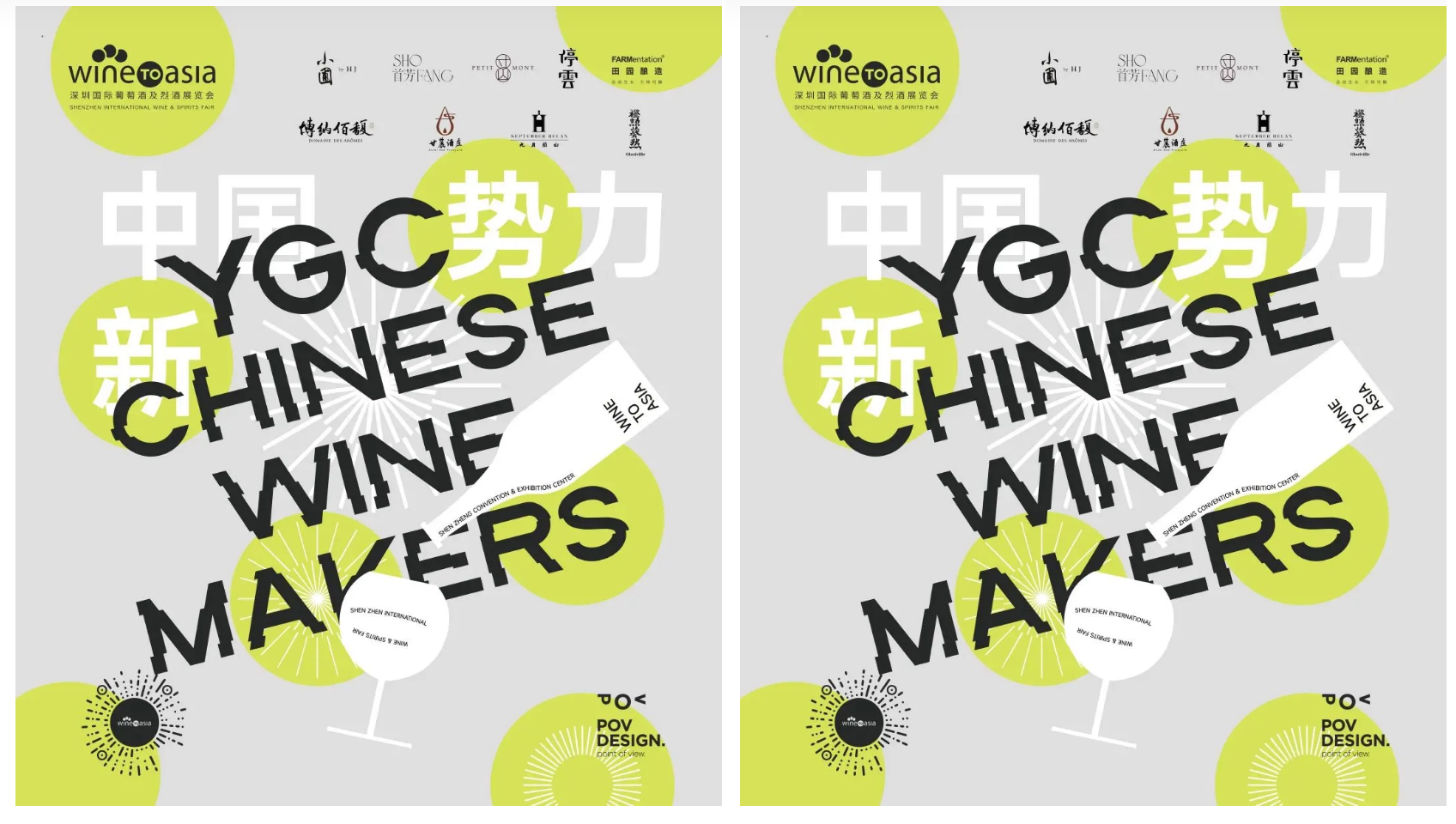“What is this era’s defining wine style?” “What is the true nature of the country’s terroir?” “What are the limits of making wine?”
These are the kind of questions a new group of young Chinese winemakers seeks to answer, questions that apparently mystify the calcifying brain matter of the industry’s old fogies.
The group of nine includes several covered here on Grape Wall of China, like tea-infused Chardonnay maker Liu Jianjun of Lingering Clouds (Ningxia), Syrah specialist Liang Ning of Sweet Dew (Ningxia) and minimalist wine-making and cutesy wine-naming guy Ian Dai of Xiao Pu aka Petit Garden (Ningxia, Yunnan, Hebei and beyond).
Young Guns of China
“The YGC is a small unofficial organization of young Chinese winemakers. YG is the opposite of OG [Original Gangster?]. C is for China,” posts Dai. “This is a group of wineries (or wine brands) that have not been established for a long time and are still in the exploration stage.”
(Per an event poster, YGC means “Young Guns of China.”)
Dai states China’s defining wine style is yet to be found, that such a process has taken three generations in other nations.
The first generation plants the grapes, the second makes good wines from those vineyards and the third has the “real confidence to create some new styles.”
Guess to what generation the YGC belong? You won’t need three guesses.
“In these young wineries (or wine brands), you will witness the birth of a Chinese style,” states Dai, who worked as a sommelier and a wine buyer for Amazon, among other jobs, before pursuing wine-making.
“In time, this group will be the most important backbone of the Chinese wine industry.”
Is that true?
Kind of hard to believe there will be one defining wine style in a country with the diverse climates, soils et al of China. Or that slightly older or more established people might not make interesting wines, especially given Charme’s recent skin-contact wine, Grace’s forays with grapes like Tempranillo, Saperavi and Sangiovese, and on and on.
But one thing is sure: the wine industry has struggled the past half-dozen years. Both wine imports and local production have slumped even as the number of wine contests, highly certified ‘educators’ and critics—all of which local producers seem to disproportionality focus their attention on—has grown. Not to mention the endless “master classes.”
Given all this, any effort to shake things up is welcome.
One benefit is that many in the new wave of winemakers operate closer to ground level, closer to the consumer. This includes the “winemakers without wineries”, those who buy grapes, rent equipment, make wines and market them to a personal following, including bars, restaurants and consumers.
And a good number of the wines lean toward the minimal intervention category, one that has shown really vibrancy over the past few years. Although status buying, for gifting and entertaining, is still a major force in the wine business, consumer interest in boutique wines, natural wines, pet-nat et al has been on a steep rise.
In any case, the YGC will showcase three dozen wines at L’Avenue Bistrot in Shenzhen on May 10 and be at Wine to Asia from May 11 to May 13 in the same city. (More details here.)
Here’s a quick look at the nine YGC partners:
Xiao Pu: As noted, a strong focus on minimal intervention wines and on exploring the country’s terrains, including Ningxia, Hebei and Yunnan.
September Helan: Ningxia winery run by Gao Yujie and her sister, who produce grape wines, including from Petit Verdot, Marselan and Cabernet Gernischt, and apricot wine.
Gan Lu aka Sweet Dew: Headed by former Helan Qing Xue assistant winemaker Liang Ning, known for Syrah but also making Bordeaux-style blends and now experimenting with Petit Manseng.
Lingering Clouds: Jianjun Liu worked with Thierry Courtade at Silver Heights before heading out on his own. He has recently added natural wines and pet-nats, including Chardonnays infused with longjing, oolong and jasmine teas.
FARMentation. Yuchen Luo has a history of making grape wines but is also pursuing bubbles made with other fruits, including peach and cherry, and is also working in multiple regions in China.
Petit Mont. Another operation that covers multiple regions—Ningxia and Yunnan—with grapes ranging from Marselan to Malbec to Dunkelfelder.
Shofung. A Qinhuangdao—Hebei province—operation making both wine and cider.
Domaine Des Aromes (Bona Baofu). Early pursuers of biodynamic practices in Ningxia who have created a following for their Chardonnay, Cabernet Sauvignon and more. They showed a new direction for Ningxia wines. And with a cellar that looks ideal for a wine and disco party.
Cheng Zhao Kui Ran. Pursing organic and biodynamic practices while working with grapes like Marselan, Petit Manseng and Cabernet Sauvignon.
Grape Wall has no sponsors of advertisers: if you find the content and projects like World Marselan Day worthwhile, please help cover the costs via PayPal, WeChat or Alipay.
Sign up for the free Grape Wall newsletter here. Follow Grape Wall on LinkedIn, Instagram, Facebook and Twitter. And contact Grape Wall via grapewallofchina (at) gmail.com.
